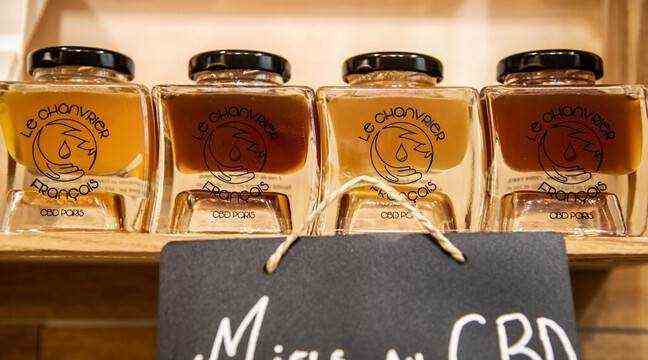For millions of people, Cannabidiol (CBD) came to light in the spring of 2019. Kim Kardashian then organized the babyshower for her 4th child on the theme of this molecule extracted from hemp. She posted photos of the party on Instagram, where guests were able to enjoy CBD tea. More than 3.6 million likes later (and perhaps thanks to Kim), the CBD is a hit: there are “1,500 points of sale” in France, according to Patrick Bédué, at the origin of the first dedicated trade show, mi -October in Paris. “The first confinement was a shock wave,” he adds. There was word of mouth, a few influencers entered the breach and the shops flourished ”. According to the professional hemp union, the market could represent more than a billion euros in two years.
A gold mine such as CBD has now made a place for itself on our plates. According to the Inter Chanvre organization, sales in “organic” food store from hemp amounted in 2017 to 3.76 million euros in France, an increase of 8% compared to 2016. And this before the current boom.
Chocolates and rum
On-line shops are popping up chocolates (for a “divine marriage”, they say), wine (it is “euphoric”) or raclette cheese (for “eating while being good”) with CBD. A molecule known for its anxiolytic virtues – unlike THC, another component of the cannabis leaf, which is psychotropic for it -. This presence in many
food or drink is, according to Patrick Bédué, purely advertising. “It’s a simple marketing effect to have a taste of hemp, even herbal or floral”, he slices.
Is it for a “simple marketing effect” that the Saka Spirit brand decided, in October, to market a CBD-based rum before Christmas? “When we see the market around CBD, we can ask ourselves the question. But this is not to create a buzz. It is at the request of our distributors and our customers that we had this desire, defends Cléa Fougères, digital project manager of the brand. We create botanical rums, so it’s consistent with our branding to add CBD to them ”. Before admitting that “it is not so much the taste that will change, but rather the relaxing effect of CBD. “
Health effects still debated
This relaxing effect, highlighted by brands that market CBD in food, is questionable. Auditioned in July 2020 by a parliamentary committee on “well-being hemp”, Alexandre Maciuk, professor-researcher at the faculty of pharmacy at Paris-Saclay University, believes that “CBD is certainly not […] stimulating, euphoric, disinhibitor like THC, but it is clearly psychotropic. “
It is used in particular to serve as an alternative to THC consumers. “We know the use of CBD made by people who take it to stop using cannabis, explains to 20 minutes Claire Desbats, director of the Rhône centers, members of the France addiction association. They try to consume in another way. Food products with CBD are all the rage, but it is highly likely that they will soon be banned in France. “
Legislation still evolving
Often presented as “100% legal” by brands, the use – food or not – of CBD is actually more complex, since no text specifically mentions cannabidiol. A decree of 1990 amended by decree in 2013 regulates the use of hemp with only “fibers and seeds of the plant”, which excludes the use of the flower, from which the CBD is derived. The Interministerial Mission for the Fight against Drugs and Addictive Behaviors (MILDECA), in an opinion published in June 2018, also excluded the leaf from marketing.
But those court rulings were swept aside by the EU Court of Justice ruling in November in the Kanavape case. The two founders of this start-up of electronic cigarettes based on CBD had initially been convicted of “infringement of French legislation on poisonous substances”. After their appeal, this European decision was described as “historic” by their lawyers. And for good reason, it allows the various players in the CBD market to be able to continue the adventure. “With this rendering in the Kanavape file, we believe that the flower can be used and that the CBD can circulate freely in France”, rejoices Laure Bouguen, founder of the start-up Ho Karan, which sells in particular chocolates or chocolate. edible lubricant with CBD.
A new law should soon see the light of day, according to MILDECA, joined in November by Liberation. But not enough to scare Laure Bouguen. “I am an entrepreneur and entrepreneurs do what they can, innovate and correct if necessary. This is how we move forward. France is not being pushed forward with lawyers. “

